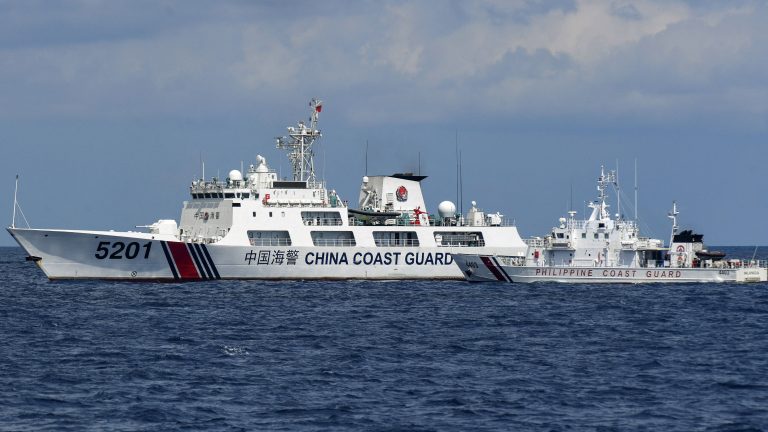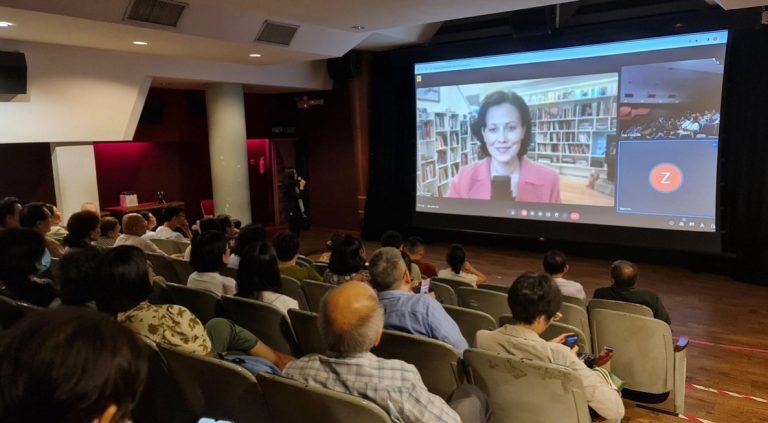Tensions in the South China Sea continue to push China and the U.S. towards conflict, with the former seeking cooperative efforts with Southeast Asian nations against Beijing’s “irresponsible actions” in the region, the South China Morning Post (SCMP) reported.
“It’s not a matter of getting countries on board with the U.S. view,” Daniel Kritenbrink, U.S. assistant secretary for East Asian and Pacific affairs, said, adding that, “It’s a matter of working with our [The Association of Southeast Asian Nations (ASEAN)] partners to advance our shared view and vision for the region.”
A partnership “to push back on behavior that runs counter to that vision and to those principles, including the many irresponsible acts that we’ve seen carried out by China over the last several years and in the last several weeks,” Kritenbrink added.
ASEAN was founded in 1967, and member states include Brunei, Cambodia, Indonesia, Laos, Malaysia, Myanmar, the Philippines, Singapore, Thailand and Vietnam. Together, the organization is the world’s fifth-largest economy, but it has been unable to unite against China’s claims of territory in the South China Sea.
U.S. Secretary of State Antony Blinken will be making a visit to Jakarta, Indonesia, in July to embolden relationships between the two countries. He will attend several meetings from the 13th to 15th before making his way to the UK and Lithuania for the North Atlantic Treaty Organization (NATO) summit.
Success
You are now signed up for our newsletter
Success
Check your email to complete sign up
“I think we all believe that countries should base their maritime claims in international law, that maritime disputes should be resolved peacefully, that all countries should enjoy freedom of navigation and freedom of overflight and unimpeded commerce,” Kritenbrink said.
READ MORE:
- China Bans Dumpling Eating Contest Following Online Complaints
- China and the Solomon Islands Forge Strategic Partnership Amid Rising Geopolitical Tensions
- Prominent US Think Tank Leader Accused of Espionage and Illicit Dealings With the CCP
Trouble brewing
According to the U.S. Energy Information Administration, around 11 billion barrels of oil and 3.1 billion cubic meters of natural gas reserves can be found in the South China Sea.
These resources appear to have caught the attention of communist China.
On July 7, the Philippine military reported 48 Chinese fishing vessels were detected “swarming” a reef near Recto Bank in late June, adding that two Chinese naval vessels and three coastguard ships “are regularly loitering” along the shoal. This area contains “immense potential for the country’s energy security and economic growth” that has attracted “rising concern over China’s recent behavior.”
Also in late June, Philippine coast guard ships were observed being “constantly followed, harassed and obstructed” by larger Chinese ships; a move that Beijing’s foreign ministry called “professional and restrained.”
In April, ships from both nations nearly crashed into each other, prompting accusations of “intrusion and provocation” by both sides.
The Philippine Defence Secretary, Gilberto Teodoro, told his U.S. counterpart, Lloyd Austin, of Beijing’s “coercive and risky” move.
US claims of defense
The U.S. asserts that China “does not have territorial claims in the region,” and defends its right to pass safely “under the freedom of navigation.” The Chinese Communist Party (CCP) however, refutes this as a violation of international law, given the involvement of U.S. military vessels and aircraft.
President Joe Biden has stepped up efforts to improve relations between the U.S. and ASEAN countries against Beijing’s growing influence. However, he has been unable to find common ground with their leaders against the CCP’s “growing assertiveness,” though several countries did agree to attend the Indo-Pacific Economic Framework.
This initiative was made as a way to depend less on China’s hold on strategic supply chains. It also made a deal to construct its own chains to transport strategic items like minerals and semiconductors.
However, the ASEAN countries are also involved with the Regional Comprehensive Economic Partnership (RCEP), a free-trade agreement that includes China, along with Japan, South Korea, Australia and New Zealand.
In his upcoming meeting in Jakarta, Blinken will provide assurance that the U.S. will maintain ASEAN’s “centrality and support” for the partnership between the former and Indonesia, a statement by the State Department noted on Friday. He will also meet his Indonesian counterpart, Retno Marsudi, in their second strategic dialogue.
Blinken has also told Beijing that Washington is not “containing” it “economically and globally”, telling several Chinese hosts at an event led by the Council of Foreign Relations in New York that “if you actually look at what’s happening, and what’s happened, the facts belie that assertion.”
Being host to the world’s largest nickel reserves, Indonesia holds significant value to international trade. Luhut Pandjaitan, Indonesia’s minister for maritime affairs and investment, said the country would suggest a “limited” free-trade agreement for certain minerals to the U.S., though many Chinese companies have made investments in refining facilities since 2020 following a local ban on nickel ore exports.







